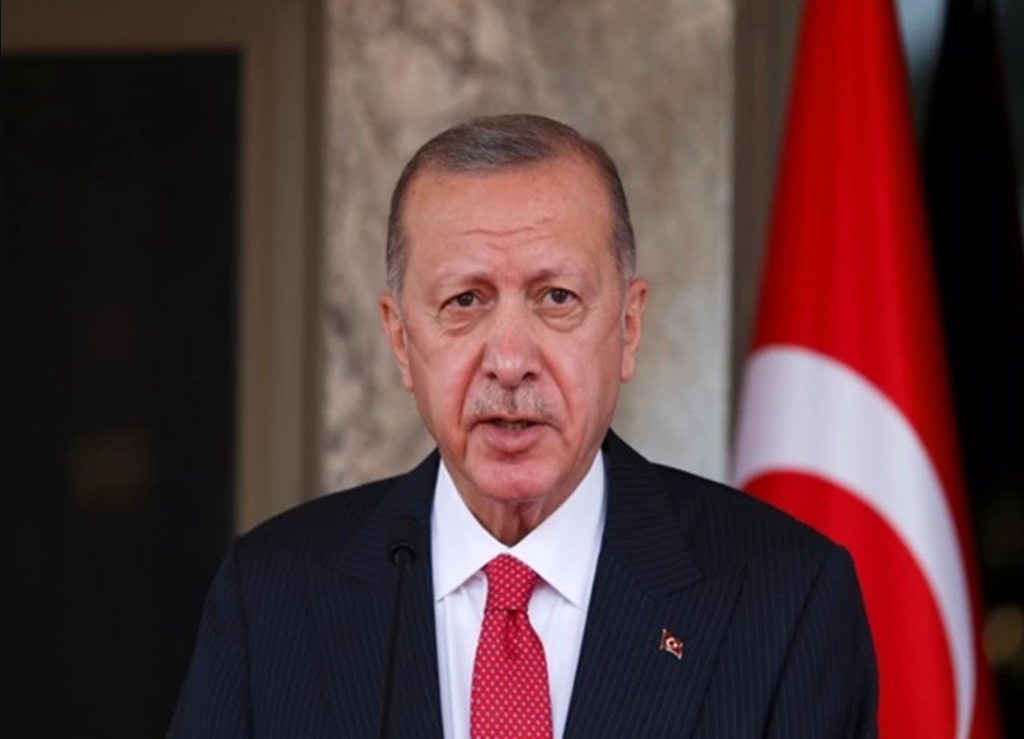
Recep Tayyip Erdogan won five more years to lead the NATO-member country at the crossroads of Europe and Asia.
Two weeks after his first-round loss, Erdogan won Sunday’s presidential runoff with almost 52% of the vote. In the second round, most Turkish voters supported him over Kemal Kilicdaroglu, a strong, established leader.
Erdogan, who has reigned for two decades, and the opposition candidate, who vowed to return to democratic standards, embrace more traditional economic policies, and strengthen ties with the West, split voters.
Erdogan must now address rising prices and rebuild after a terrible earthquake that killed more than 50,000 people.

Erdogan praised the nation for re-electing him in two speeches in Istanbul and Ankara.
“We hope to be worthy of your trust, as we have for 21 years,” he told supporters on a campaign bus outside his Istanbul house.
He said the race was finished yet proceeded to criticize his opponent.
Erdogan remarked outside Ankara’s presidential palace, “The only winner today is Turkey,” pledging to fight hard for Turkey’s second century, which he termed the “Turkish century.” It’s the nation’s centennial.
Erdogan’s unorthodox policies have hurt the economy, therefore major problems lay ahead. He must also reconstruct 11 regions devastated by the Feb. 6 earthquake.
Kilicdaroglu called the election “the most unjust ever” since Erdogan received all public resources.
“We will continue to lead this struggle until real democracy comes to our country,” he stated in Ankara. He praised his 25 million voters and begged them to “remain upright.”
Kilicdaroglu stated the people “to change an authoritarian government despite all the pressures.”
Erdogan supporters waved Turkish flags, honked automobile horns, and chanted his name in celebration. Istanbul areas heard celebratory gunshots.
His second term will include sensitive negotiations with NATO allies about NATO’s future and the Ukraine crisis.

World leaders congratulated Turkey and Erdogan, underscoring their increased influence.
Despite years of poor ties, Western lawmakers stated they would cooperate with Erdogan. Sweden’s NATO bid hinges on Turkey. The bid strengthens the military alliance against Russia and maintains a commitment to enable Ukrainian grain imports and prevent a worldwide food catastrophe.
“No one can look down on our nation,” Erdogan stated in Istanbul.
Steven A. Cook, a senior scholar at the Council on Foreign Relations in Washington, said Turkey will “move the goal post” on Sweden’s NATO membership to get US demands.
He also predicted that Erdogan, who has proposed a new constitution, will press harder to enshrine AKP policies.
Erdogan pledged to rehabilitate quake-stricken communities in his victory speech. In a Qatar-led resettlement initiative, a million Syrian refugees would return to Turkish-controlled “safe zones” in Syria.
Conservative people support Erdogan for elevating Islam in secular Turkey and increasing the country’s worldwide prominence.
Since 2010, a soft-spoken former civil servant has led the pro-secular Republican People’s Party, or CHP, Erdogan’s opponent. Kilicdaroglu’s opponents united after months. Erdogan has never won an election.
In the runoff, Kilicdaroglu promised to deport refugees home and ruled out peace talks with Kurdish insurgents.
Erdogan and pro-government media accused Kilicdaroglu, backed by the pro-Kurdish party, of conspiring with “terrorists” and advocating “deviant” LGBTQ rights.
Erdogan reiterated that LGBTQ persons cannot “infiltrate” his ruling party or nationalist allies in his victory address.
Erdogan voter Hacer Yalcin in Ankara predicted a bright future.
Erdogan won… Who else? “He made everything for us,” Yalcin claimed. “God blesses!”
Muslim Erdogan, 69, will rule until 2028.
A 2017 referendum narrowly won by him abolished Turkey’s parliamentary system and made the president dominant. He was the first directly elected president in 2014 and won the executive office in 2018.
Erdogan’s first half saw economic progress that pulled millions out of poverty and reforms that opened discussions with the EU.
After Turkey’s failed coup attempt, he suppressed liberties and the media and consolidated authority. Cleric denies participation.
“It is sad on behalf of our people that a government with such corruption, such stains, has come into power again,” said 37-year-old metalworker Ahmet Koyun in Diyarbakir, a Kurdish metropolis. For a change, Mr. Kemal would have been fantastic for our country.”
However, everyone must accept the findings.
